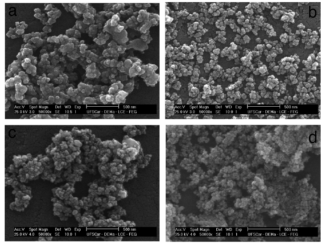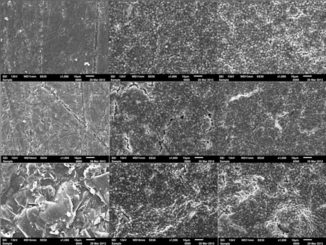
Photoelectrochemical removal of 17 beta-estradiol using a RuO2-graphene electrode
Abstract: A new electrode for the photoelectrochemical removal of 17 beta-estradiol from water using ruthenium oxide nanoparticles supported on reduced graphene oxide is proposed in this study. The morphology, microstructure and the electrochemical performance of the material were characterized using HRTEM, XRD and Raman spectroscopy. The characterization showed the formation of reduced graphene oxide from a micro-wave assisted hydrothermal method with a particle size of 5.0 nm + 2.4 nm. The electrochemical measurements point to a high performance of the electrode in the presence of a white light source. The hormone removal efficiency in water containing 50 mu mol L-1 of 17 beta-estradiol was evaluated using chronoamperometry at +1.0 V and the process was monitored using liquid chromatography. The reaction is pseudo first order with the removal of 92.2% of 17 beta-estradiol after 60 min of photoelectrocatalytic treatment. (C) 2016 Elsevier Ltd. All rights reserved.
Author(s): Moraes, FC; Gorup, LF ; Rocha, RS; Lanza, MRV; Pereira, EC.
CHEMOSPHERE
Volume: 162 Pages: 99-104 Published: NOV 2016
PDF: Photoelectrochemical removal of 17 beta-estradiol using a RuO2-graphene electrode
DOI: 10.1016/j.chemosphere.2016.07.070




